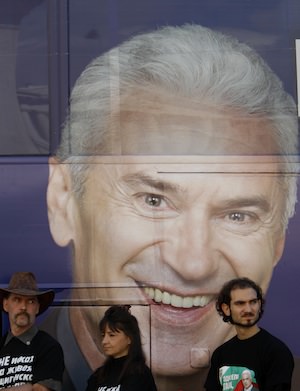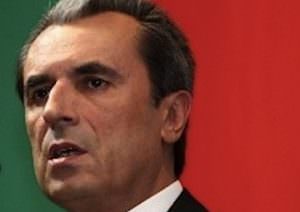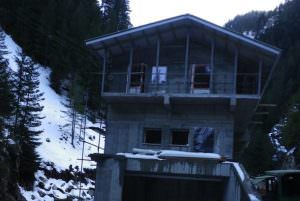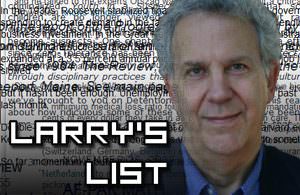Right-Wing Extremism—It’s Not Just for the U.S.
The Syrian refugee crisis has fanned the flames of right-wing extremism in Bulgaria, signaling yet more nationalistic political sentiment in Europe. No one’s predicting a return of the 1930s rise of fascism, but the parallels are disturbing.
Opposition to the flow of Syrian refugees in Europe has given new life to a once-marginalized right-wing political group in Bulgaria, the Ataka, adding to what has been a troubling rise of right-wing extremism in Europe, the New York Times reported Saturday.
The article comes just weeks after Marine Le Pen of the French Front National party (and daughter of anti-Semitic former party head Jean-Marie Le Pen), and Dutch anti-Islamic politician Geert Wilders announced a coalition of right-wing European groups to try to collapse the European Union from within, a move that gives new energy to the kinds of beliefs that undergirded some of the darkest days of modern European history. The target: EU elections in May, and the current rise of the right suggests these groups could have significant success.
The Times report focused on the sudden increase in support for Ataka, which is baldly racist in its views, and embodied by figures like Angel Bozhinov, who lost his municipal council seat in the border city of Svilengrad two years ago, but could well win it back in the next election cycle. From the Times:
Membership of the local branch of Ataka, he said, had surged in recent weeks as “people come up to me in the street and tell me that our party was right.” Ataka, which means attack, champions “Bulgaria for Bulgarians” and has denounced Syrian refugees as terrorists whom Bulgaria, the European Union’s poorest nation, must expel. An Ataka member of Parliament has reviled them as “terrible, despicable primates.”
With populist, anti-immigrant parties gathering momentum across much of Europe, Ataka stands out as a particularly shrill and, its critics say, sinister political force — an example of how easily opportunistic groups can stoke public fears while improving their own fortunes.
The influx of Syrian refugees has sown divisions across the European Union as the refugees add burdens on governments still struggling to emerge from years of recession. But Bulgaria is perhaps the most fragile of all the European Union’s 28 members. Modest as the numbers of refugees are here, the entry of nearly 6,500 Syrians this year has overwhelmed the deeply unpopular coalition government and added a volatile element to the nation’s already unstable politics.
The arrival of the refugees and public fury over the stabbing of a young Bulgarian woman by an Algerian asylum seeker “has opened the floodgates” for far-right nationalists, said Daniel Smilov of the Center for Liberal Strategies, a policy research group in Sofia, the capital. “They see this as their big chance.”
The right’s ascension in Bulgaria trails that in other European countries, including Greece, France, the Netherlands and even Switzerland. The 2007 economic crisis and persistent economic problems across the European Union have given the right something to tilt against — and stoked a rise in nationalism. But in some ways, the rise reflects a historical swinging of the pendulum, as Canada’s Maclean’s magazine reported last month:
Europe’s far-right has come in waves. The first parties rode the tide of 1930s fascism, often drawing support from neo-Nazi networks. They brought violence and uniforms and salutes, and a deep mistrust of democratic institutions. Another wave appeared in the mid-’80s, with Europe’s surge toward union and a massive influx of immigrants. This new far-right was anti-tax, anti-EU and wholly populist. And more ideological than its forebear. It argued for ethnopluralism: essentially, the view that every culture is valid but should be separated by borders.
And now a “third wave.” Today’s far-right is deeply steeped in the notion of a “cultural threat”—but encased in a firm avowal of democracy. Islam-bashing, for instance, is couched as a discussion of human rights. Euroskepticism is linked to support for national private industry. It is also politically savvy. New far-right parties are young and charismatic, popular on Facebook and Twitter.
Anger and mistrust have not been dampened, but rather been channelled into the democratic system. For instance, in recent years the Sweden Democrats—whose slogan is “Keep Sweden Swedish,” and whose goal is to reduce immigration by 90 per cent—has distanced itself from its 1980s neo-Nazism, which allowed the party to win parliamentary seats in 2010.
And ironies abound, including the notion of nationalistic, anti-European Union political parties working across national borders gaining power within the political body they despise.
Almost as troubling, The Guardian reports, is the reaction by the mainstream political parties in Europe. Much like the Republican Party swinging to the right to accommodate the tea party extremists in the United States, center-right and neo-liberal groups in Europe have shifted ground to appease the right wing there. According to The Guardian:
More worrying than the growth of the far right are the temporising gestures to the racists and anti-immigrants now coming from mainstream Conservative and even Liberal Democrat politicians and from some of the new “Blue Labour” ideologues. The warning from the likes of David Blunkett that hostility to Roma immigrants might lead to a popular “explosion” is reminiscent of Enoch Powell’s rhetoric.
An antidote to the far right requires that the European left articulates and pursues a comprehensive alternative to economic stagnation, an ever-widening income and wealth gap and the degradation of our social standards, civil liberties and democratic rights. But that alternative has to be fought for at European as well as national and local levels, and will require more, not less, European integration.
Time is running out, not only for the European Social Democrats, but also for the wider socialist left and the greens, to show they can create a counterbalance to the rightward drift of the centre. Without that, the new far-right alliance may only have to hold together and wait for its hour to strike.
—Posted by Scott Martelle
.
Your support matters…Independent journalism is under threat and overshadowed by heavily funded mainstream media.
You can help level the playing field. Become a member.
Your tax-deductible contribution keeps us digging beneath the headlines to give you thought-provoking, investigative reporting and analysis that unearths what's really happening- without compromise.
Give today to support our courageous, independent journalists.





You need to be a supporter to comment.
There are currently no responses to this article.
Be the first to respond.